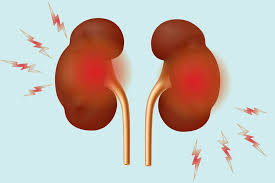People with proteinuria have unusually high amounts of protein in their urine. The condition is often a sign of kidney disease. Kidneys are filters that don’t usually let a lot of protein pass through. When kidney disease damages them, proteins such as albumin may leak from your blood into your pee. Kidney disease often has no early symptoms. Protein in the urine might be one of the first signs. Proteinuria can be diagnosed on a urine test during a routine physical.
Protein in Urine Symptoms
Most people who have proteinuria won’t notice any signs, especially in early or mild cases. Over time, as it gets worse, the symptoms including:
- Foamy or bubbly pee
- Swelling (edema) in your hands, feet, belly, and face
- Peeing more often
- Shortness of breath
- Fatigue
- Loss of appetite
- Upset stomach and vomiting
- Muscle cramps at night
Protein in Urine Causes
Some common things can cause proteinuria. These include:
- Dehydration
- Inflammation
- Low blood pressure
- Fever
- Intense activity
- High stress
- Kidney stones
- Taking aspirin every day
- Very low temperatures
Conditions that damage your kidneys can also make you have too much protein in your urine. The two most common are diabetes and high blood pressure.
Other serious conditions that can cause proteinuria include:
- Immune disorders such as lupus
- Kidney inflammation (glomerulonephritis)
- A blood cancer called multiple myeloma
- Preeclampsia, which affects pregnant women
- A buildup of protein in your organs (amyloidosis)
- Cardiovascular disease
- Intravascular hemolysis, a condition in which red blood cells are destroyed
- Kidney cancer
- Heart failure
Protein in Urine Risk Factors
Factors that are more likely to cause protein in your urine:
- Obesity
- Age over 65
- A family history of kidney disease
Some people get more protein into their urine while standing than while lying down. This condition is called orthostatic proteinuria.
Protein in Urine Diagnosis
A urine test called a urinalysis can tell whether you have too much protein in your urine. First, you’ll pee into a cup. A lab technician will dip in a stick with chemicals on the end. If the stick changes colour, it’s a sign of too much protein. You might need to have this test more than once to find out how long the protein is there.
Text Credit: https://www.webmd.com/



